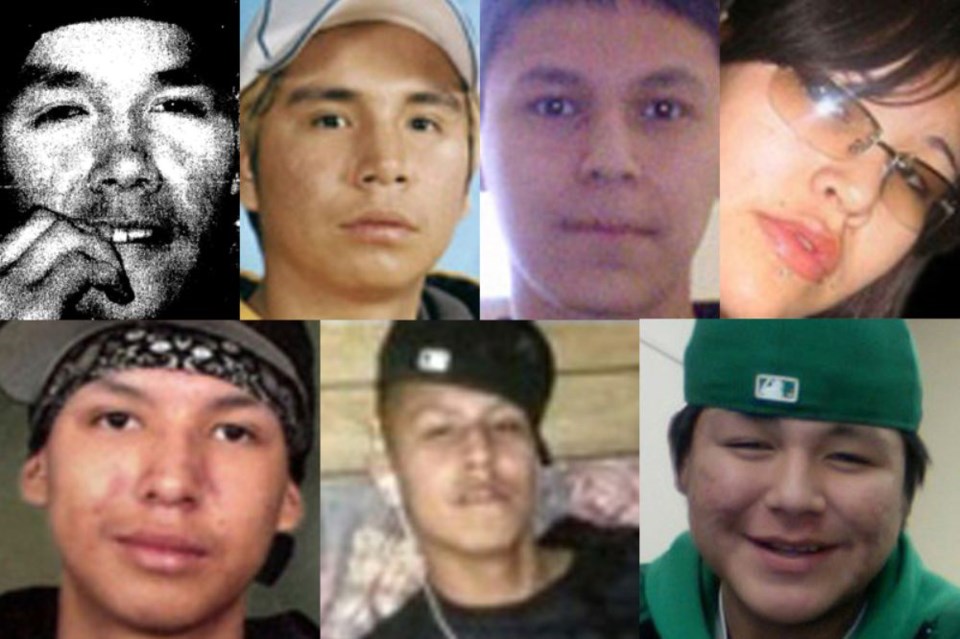THUNDER BAY – The city’s one-year response to recommendations from the seven youth inquest was unanimously backed by council, though many are calling on the federal and provincial governments to come to the table.
Administration on Monday presented council with an overview of the 31 recommendations directed to the city from the coroner’s inquest in the deaths of seven students between 2000 and 2011 from remote Indigenous communities who died while attending high school in Thunder Bay.
The inquest, which examined the deaths of Jethro Anderson, Reggie Bushie, Robyn Harper, Kyle Morrisseau, Paul Panacheese, Curran Strang and Jordan Wabasse, produced a total of 145 recommendations. One recommendations was for all named parties to produce an annual report updating the province’s chief coroner of the status of implementing the recommendations, which are not legally binding.
A number of councillors noted a significant number of the recommendations – especially the ones targeting major systemic changes such as equity for Indigenous education – are directed to senior levels of government with Ottawa and the province urged to assist the city and Indigenous organizations with funding to help fulfil various recommendations.
“I think we need to know when Canada is coming to the table, we need to know when Ontario is coming to the table,” Coun. Joe Virdiramo said.
“We can’t do it alone.”
A similar opinion was voiced by Coun. Rebecca Johnson, who said the city needs to start pushing that “it’s not just Thunder Bay.”
“It’s identified as a national issue and we’ve got to start saying that we’re going to go back to the basics, find out what those problems are and have a solution for when young people come to Thunder Bay there are no issues because it’s been dealt with in the northern communities,” Johnson said.
“I just don’t want to keep spending money to band aid. I’m tired of it because it’s not helping us in the long run of where we need to go.”
One recommendation was to conduct a safety audit of the city’s watercourses. The bodies of five of the seven youth that were the subject of the inquest were found in Thunder Bay waterways and Indigenous teens Tammy Keeash and Josiah Begg were both found dead in water last month.
The audit was performed last month with more than 50 participants representing all named parties. The group conducted day and night audits of the Kaministiquia River between Kam River Heritage Park and the Thunder Bay Rowing Club, the Neebing-McIntyre Floodway from Balmoral Street to the rail tracks east of Fort William Road and McVicar Creek from Algoma Street to Lake Superior.
City strategic servies director and inquest lead Karen Lewis, along with Thunder Bay Police Service Komar, crime prevention council coordinator Lee Ann Chevrette and Northern Nishnawbe Education Council executive director Norma Keijick, presented preliminary findings.
Suggested actions include installing barriers underneath bridges and tunnels, along with motion activated lights and surveillance cameras.
Keijick described the safety audit process as an “eye opener.”
“Looking at the parks and looking at the walkways after the training we received, I don’t feel safe after what I learned,” Keijick said. “You look at things differently. You look at the surroundings differently. The bushes, where somebody could hide, where there could be potential crime that could happen.”
A full report with implementation costs is expected to be put before council in August.
As well, multiple councillors inquired about how to stop the purchasing of alcohol to be consumed by youth.
Komar said city police are working with the LCBO and Beer Store to try to curb those purchases, with police wanting to include a message to those suppliers – also known as runners – that providing alcohol to underage youth can have fatal consequences.
“It’s not just a fine. It’s kids dying,” Komar said. “They’re dying. You’re buying the alcohol for someone who could end up in the river.”
Council approved administration’s proposed First Nation Secondary School Transit Pass Pilot Program, which will provide a subsidized bus pass to Indigenous students who are living in Thunder Bay to attend high school but are not permanent city residents. That pilot project will begin in the next school year.
